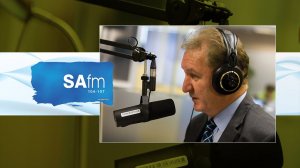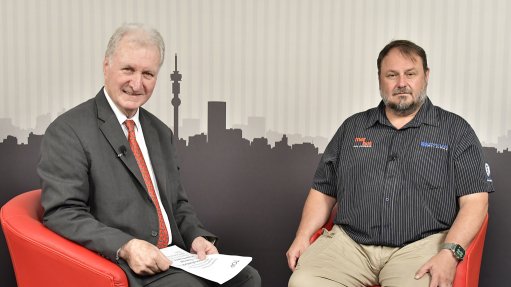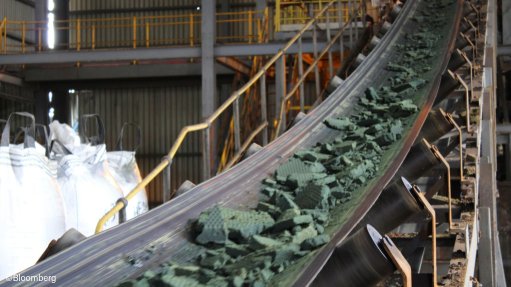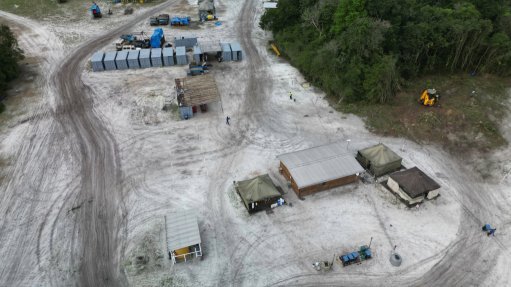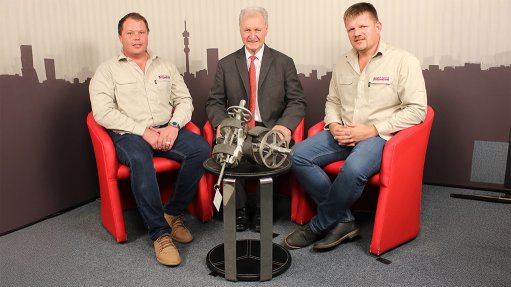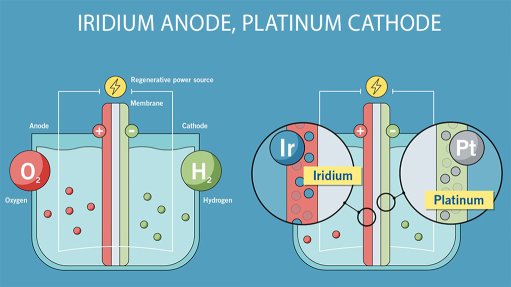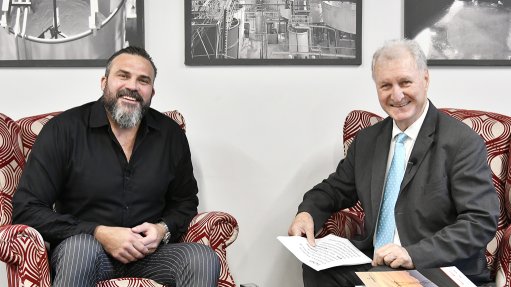On-The-Air (25/05/2018)
Every Friday, SAfm’s radio anchor Sakina Kamwendo speaks to Martin Creamer, publishing editor of Engineering News and Mining Weekly. Reported here is this Friday’s At the Coalface transcript:
Kamwendo: 128 years of branding came crashing down this week when the name Chamber of Mines was trashed and replaced with Minerals Council South Africa.
Creamer: Good riddance. We need to get rid of that past, some of which is horrific. When we think of the migratory labour and how that smashed family life and wives and children weren’t allowed to live with their husbands, it really hammered us badly in this country. Then, when you think of the million deaths of people at a time when people were forced to go into very dangerous areas, 6-million people injured. Then that terrible situation they had with the Mozambique Convention.
This was tantamount to slavery. People were recruited in Mozambique, brought to work in our mines here and then paid a pittance in local currency in Maputo and solid gold bars had to be sent to Lisbon. I think, that we should go back to Portugal and say pay back the money, because how could they have such a dastardly system where Lisbon benefitted in hard gold and people of Mozambique did not benefit, but they got a pittance in local currency. So all that past means that we have got to have a flight of rebirth.
We have got to fly into a rebirth situation and although the mining industry is bent and buckled it is now under very good leadership. When you look at the president now of Minerals Council South Africa Mxolisi Mgojo, he is fantastic. We can do so much now to get a new era born. This renaming Minerals Council South Africa puts us in line with the cut and thrust of our competitors that are knocking us into a cocked hat. The Australians and the Canadians do so much better than we do.
We have got to find ways of resurrecting this industry, because it can put so much into our economy. It has got so many spin offs and we know that have to be in this flight of rebirth, because exploration has just been neglected. Every ounce that you take out you are not putting it back and your industry is dying. That is exactly what has been happening, there hasn’t been any investment in this flight of rebirth that we need.
Kamwendo: With all the talk about new emerging farmers coming on to the land in the future, South Africa needs to step up its mining of phosphates.
Creamer: It really bothers me that we are talking now about expropriation, getting land for people who want to be emerging farmers. But, what about the nutrients that we are going to need to get the yields. We know the world is short of fertiliser and I look at our Foskor, it is State-owned, but it is somnambulant. I need to see some sort of injection of activity around the area of saying to people you have expropriated this land, but you need to really get the best out of it. How are you going to get the best out of it? You need soil nutrients.
Where you do you get these soil nutrients? Well, we mine them at Palaborwa and the horrific thing is to rail them down to Richards Bay where they are processed, costs more than one would ship from Saldanha to Richards Bay. This has been highlighted now, because a private sector company is developing a phosphates mine in the Western Cape. It is called Kropz. Interestingly the 25% BEE partner is African Rainbow Capital. We have heard a lot of African Rainbow Minerals, but African Rainbow Capital is an investment bank.
They have put money into this new project and of course African Rainbow Capital is chaired by Patrice Motsepe. I am so pleased to learn that there was already a deal done that what is going to be mined at Kropz, and there has been a delay at this Western Cape operation they are redesigning the processing plant, but eventually phosphates will start emerging. They are not going to just be exported. A third of them is going to shipped from Saldanha across to Richards Bay and then processed at the Foskor.
I am also observing that we are a net importer of fertiliser. South Africa is a substantial importer of fertiliser. If we are going to promote small scale farming and people coming on to the land, we need to do something about mining more of the plant nutrients in this country and we know it can be done. It hasn’t been done, because investors walked away from it, because it is largely controlled by parastatals, which are not noted for encouraging investment.
I think it needs a situation of heads put together, particularly the Industrial Development Corporation, which controls Foskor. We need to do something about increasing the output of fertiliser, because the whole world is needing fertiliser. If we don’t, what is being taken out of our ground is going to be exported and not going to benefit these emerging farmers that are coming through.
Kamwendo: Certification is no longer a guarantee of skills in South African mines where a mine captain may soon face a culpable homicide charge for a blatant safety breach.
Creamer: We have people dying in our mines and when they do investigations, they find that people clutching blasting certificates, mine overseer certificates and management certificates don’t really know how to keep mines safe. People have been certified, but new recruits top managers have told me know that they retest them to find out if these certificates really mean anything.
Do they know what is a safe mine? We see here in this one incident there may be a culpable homicide charge brought against a mine captain, who not only went against all the plans that had been laid out for him, but then he lied about it. There were serious fatalities in this situation. There were people that died as a result of him just going his own way.
People are saying this decline in skills for deep underground mining is now requiring intense management vigilance. People have to check on everything and retest people even though they have got their certificates to make sure we stop killing people in our underground mines.
Kamwendo: Thanks very much. Martin Creamer is publishing editor of Engineering News and Mining Weekly.
Article Enquiry
Email Article
Save Article
Feedback
To advertise email advertising@creamermedia.co.za or click here
Press Office
Announcements
What's On
Subscribe to improve your user experience...
Option 1 (equivalent of R125 a month):
Receive a weekly copy of Creamer Media's Engineering News & Mining Weekly magazine
(print copy for those in South Africa and e-magazine for those outside of South Africa)
Receive daily email newsletters
Access to full search results
Access archive of magazine back copies
Access to Projects in Progress
Access to ONE Research Report of your choice in PDF format
Option 2 (equivalent of R375 a month):
All benefits from Option 1
PLUS
Access to Creamer Media's Research Channel Africa for ALL Research Reports, in PDF format, on various industrial and mining sectors
including Electricity; Water; Energy Transition; Hydrogen; Roads, Rail and Ports; Coal; Gold; Platinum; Battery Metals; etc.
Already a subscriber?
Forgotten your password?
Receive weekly copy of Creamer Media's Engineering News & Mining Weekly magazine (print copy for those in South Africa and e-magazine for those outside of South Africa)
➕
Recieve daily email newsletters
➕
Access to full search results
➕
Access archive of magazine back copies
➕
Access to Projects in Progress
➕
Access to ONE Research Report of your choice in PDF format
RESEARCH CHANNEL AFRICA
R4500 (equivalent of R375 a month)
SUBSCRIBEAll benefits from Option 1
➕
Access to Creamer Media's Research Channel Africa for ALL Research Reports on various industrial and mining sectors, in PDF format, including on:
Electricity
➕
Water
➕
Energy Transition
➕
Hydrogen
➕
Roads, Rail and Ports
➕
Coal
➕
Gold
➕
Platinum
➕
Battery Metals
➕
etc.
Receive all benefits from Option 1 or Option 2 delivered to numerous people at your company
➕
Multiple User names and Passwords for simultaneous log-ins
➕
Intranet integration access to all in your organisation



